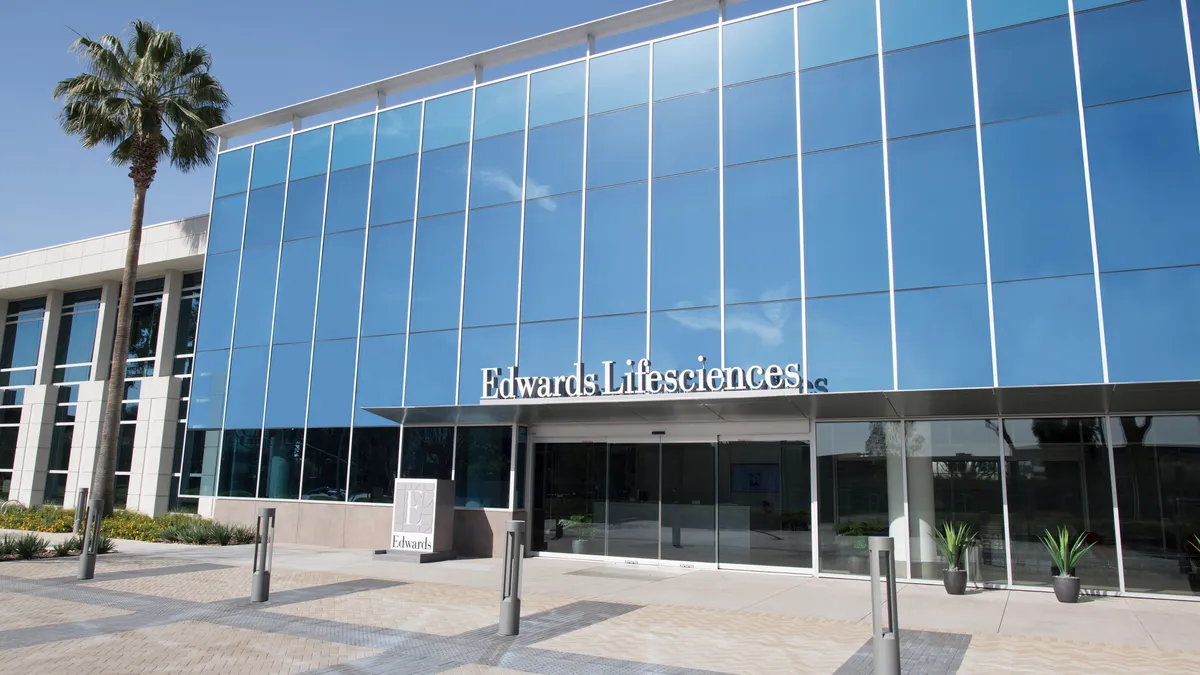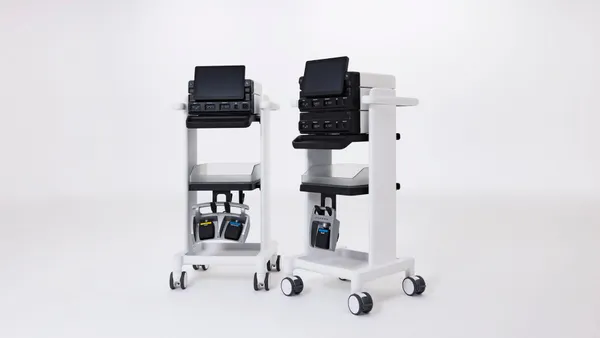Dive Brief:
-
Three deaths have been reported in relation to the rupturing of cardiovascular balloons made by Edwards Lifesciences, according to FDA.
-
Edwards began recalling nine lots of the IntraClude intra-aortic occlusion device after seeing an uptick in complaints related to a problem that could cause adverse outcomes to patients.
-
FDA has provided additional information, revealing Edwards has received 22 complaints related to balloon rupture or puncture. The agency categorized the recall as a Class I event.
Dive Insight:
Surgeons use IntraClude to block the aorta during a procedure that temporarily tasks a machine with carrying out the functions of the heart and lungs. The inflated balloon provides the cardiac isolation that is essential to the minimally invasive heart procedure.
The critical role the balloon plays in a major procedure means the consequences of a device failure can be severe. If the balloon bursts, the patient’s heart can fill and warm and the operative site may be obscured. Surgeons faced with this situation need to replace the failed device or change their strategy, by switching to an open procedure, for example.
These barriers to the timely completion of the procedure can mean a patient is kept on the machine that is serving as their heart and lungs for longer, raising the risk of complications like embolism, neurological damage, stroke and death.
Most reports of IntraClude failures posted this year in FDA’s MAUDE device experience database end with the patient being fine following the procedure. However, there have been three reports of patient death. MAUDE features one case in which the patient died 10 days after surgery, potentially because of damage stemming from a lack of oxygen to the brain. Another patient died of multiple organ failure. Neither report states conclusively that IntraClude caused the deaths.
Edwards has previously received reports of balloon ruptures and punctures but the rate of problems was within the expected occurrence rate. That changed over the first four months of 2019, when an increase in the rate of complaints led Edwards to take action.
In May, Edwards sent urgent recall notices to its customers. The notices detailed the problem and asked customers with products from the nine affected lots to return the devices. Edwards is pulling 757 devices distributed between May 2017 and February 2019 from the market.
Edwards is still investigating why the devices are rupturing. The cases published in MAUDE show experienced surgeons who are accustomed to working with IntraClude are among the individuals reporting device ruptures.












